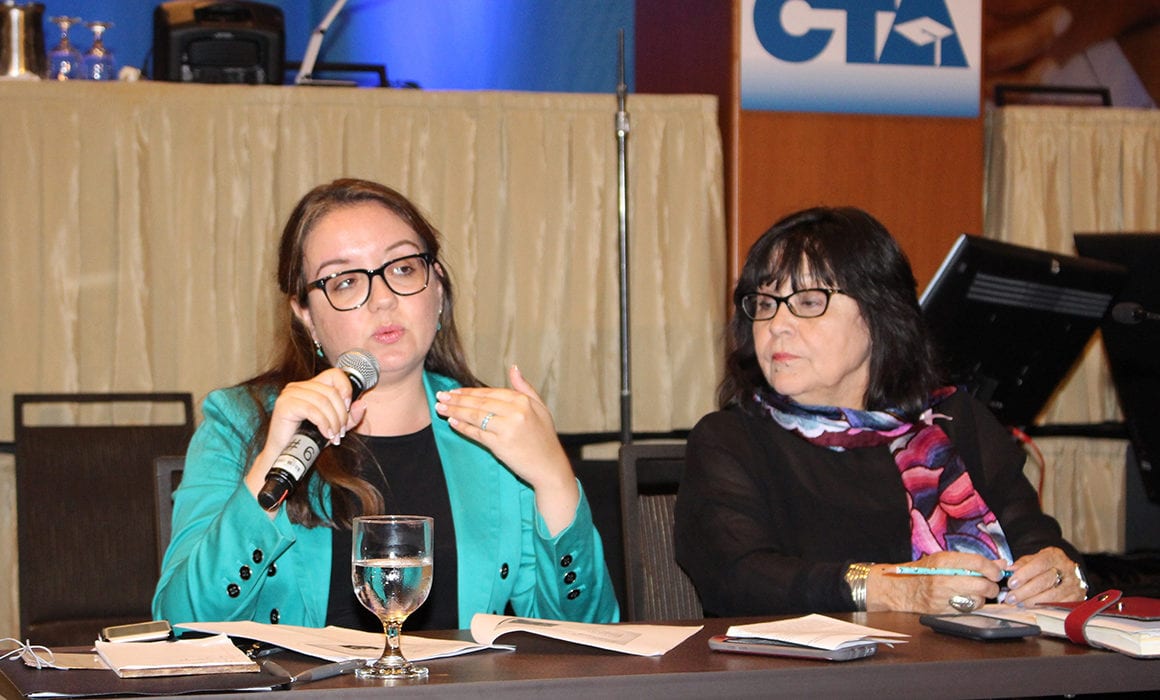
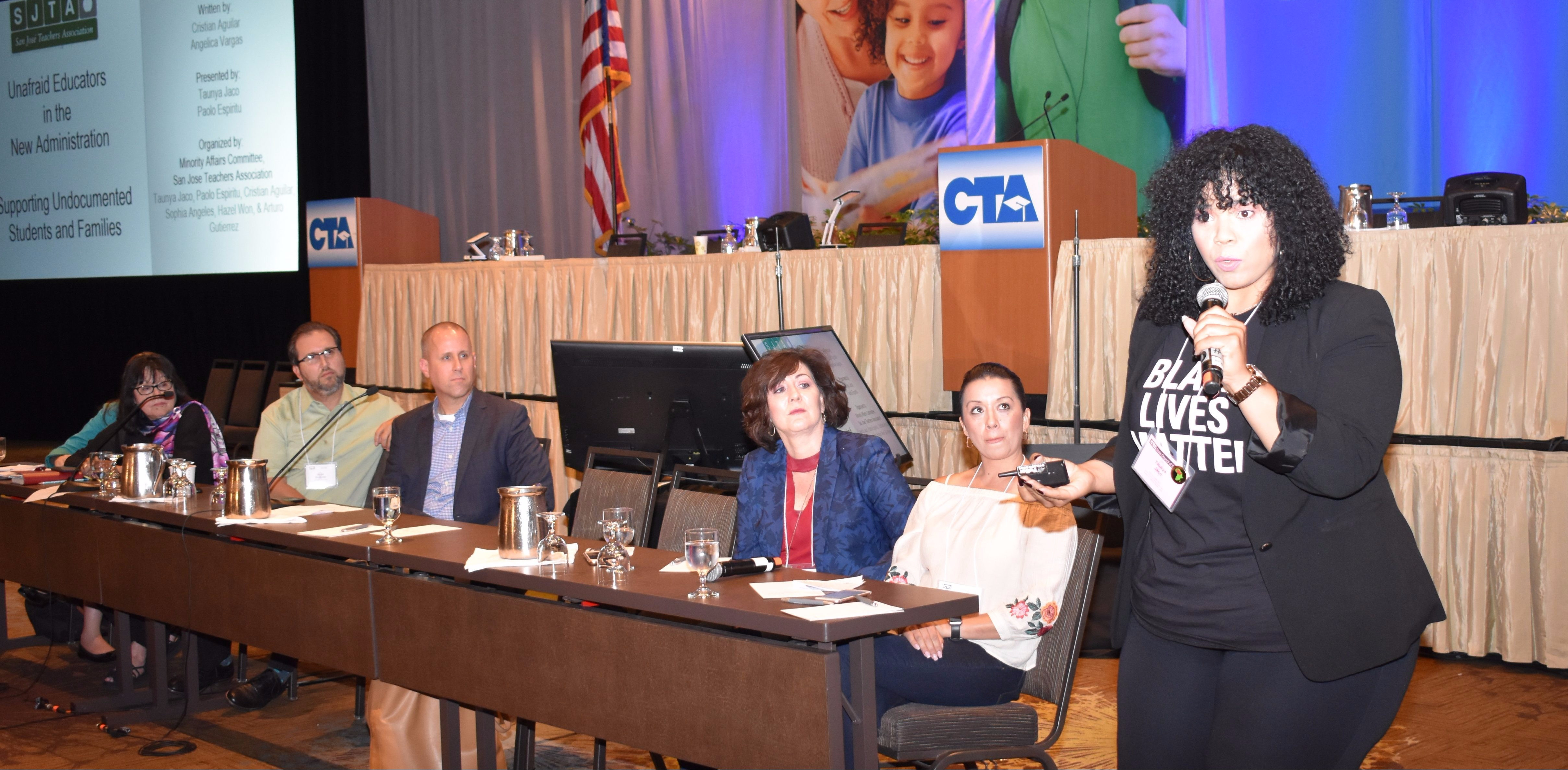
San Jose Teachers Association member Taunya Jaco speaks at the forum. Seated from left to right: Theresa Montaño, Javier Gutierrez, Charles Shannon, Christine Benson and Louise Williamson.
On Oct. 21, CTA State Council held a forum on “DACA: Supporting Immigrant Students and Their Families.” Panelists – mostly educators and CTA chapter members – spoke on DACA students’ and families’ rights as well as educators’ rights, discussed how chapters are using immigrant rights to engage their members in social justice work, and ways to move forward.
The forum was moderated by Charles Shannon, chair of the State Council Civil Rights in Education Committee. Also on the panel were CTA Vice President Theresa Montaño, Javier Gutierrez (Alhambra Teachers Association), Taunya Jaco (San Jose Teachers Association), Christine Benson (National City Elementary Teachers Association) and Louise Williamson (Sweetwater Education Association), and attorney Ignacia Rodriguez from the National Immigration Law Center.
The Deferred Action for Childhood Arrivals program (DACA) allows undocumented immigrants who were brought to the United States as children to receive work permits, go to college and get driver’s licenses. President Trump rescinded DACA in September, and gave Congress six months to come up with a permanent policy before officially ending it. California is home to more DACA recipients than any other state, nearly 223,000, many of whom now live in fear of deportation.
“The attack on DACA students and educators is nothing short of immoral. If we don’t stand, who will?”
—CTA President Eric Heins
CTA President Eric Heins spoke before the forum began about the need for educators to get involved. “This isn’t extra to our work, this is our work,” he said. “This doesn’t only affect our students. We have 5,000 teachers in California who are DACA, so it affects our members as well.
“The attack on DACA students and educators is nothing short of immoral. If we don’t stand, who will?”
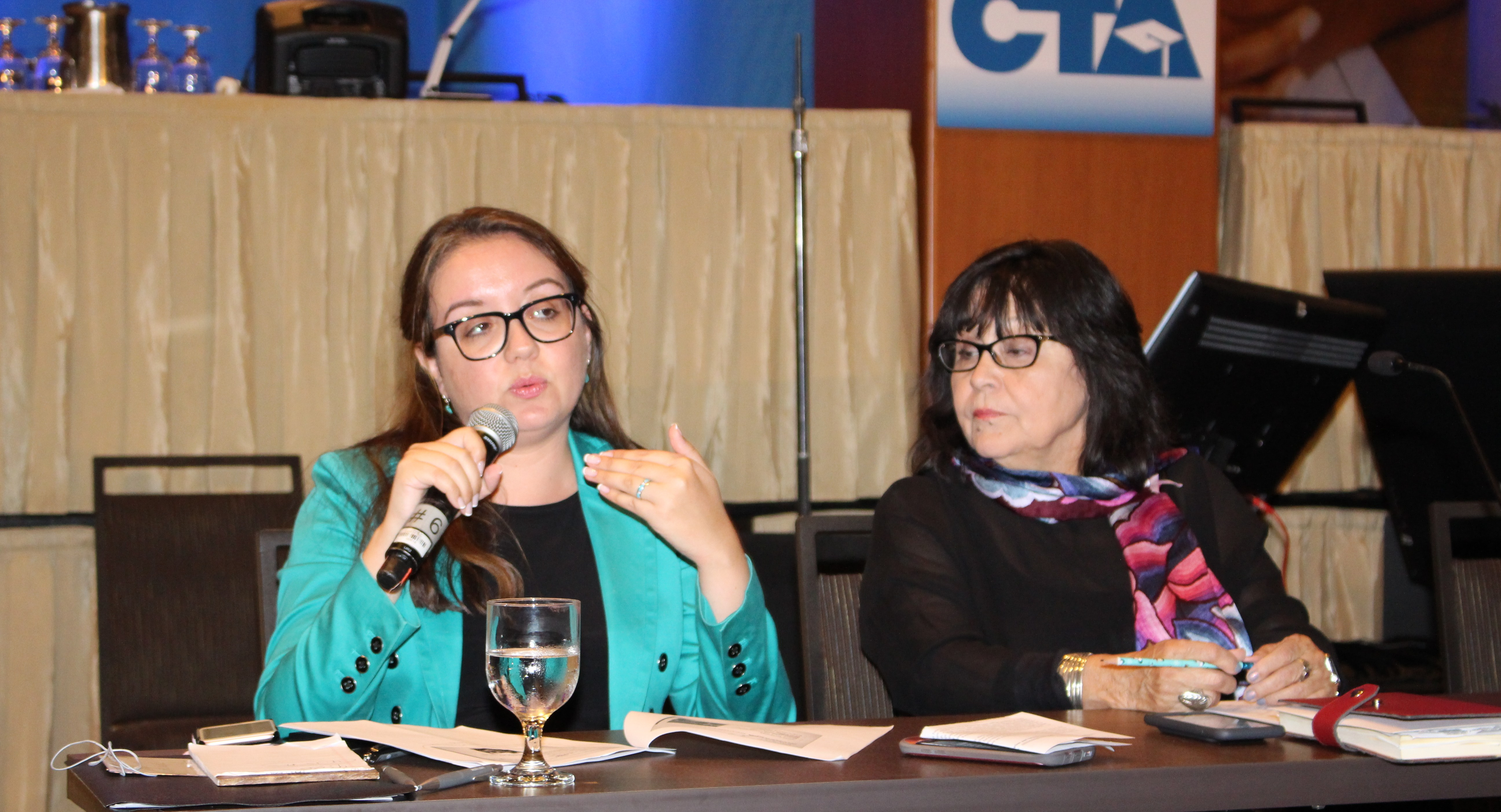
Panelists Ignacia Rodriguez and Theresa Montaño. Photo by Mike Myslinski
Montaño talked about how the Alhambra Teachers Association (ATA) and its partners have been working on protecting the rights of the undocumented since the Obama Administration, and how important it was to move it from being seen as only a Latino issue. Their efforts have resulted in a support network of advocates and activists who are working with students in kindergarten through university.
“Part of our goal was to make space in the union for those doing social justice work.”
—CTA Vice President Theresa Montaño
Significantly, Montaño said the work has also been a drive for membership engagement. “We knew there were a number of people who would join the union, but they didn’t see themselves or their interests in the work that the union was doing,” she said. “They didn’t feel the work they were doing as community advocates or immigrant rights workers were things that the union did. So part of our goal was to make space in the union for those doing social justice work.
“We’ve been successful in that regard. We have a lot of folks who are now members of union and active members in leadership roles because of immigrant rights work.”
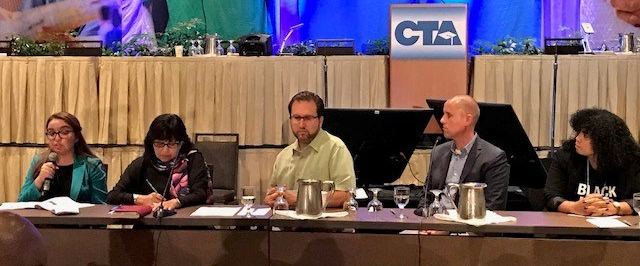
From left to right: Ignacia Rodriguez, Theresa Montaño, Javier Gutierrez, Charles Shannon, Taunya Jaco.
ATA Javier Gutierrez expanded on the chapter’s decision to focus on “vulnerable communities — not just immigrant youth but poverty, LGBTQ — to broaden our advocacy.”
“We are helping give vulnerable communities voice,” he said. “[For example,] we get students engaged doing social justice artwork. We did the May 1 March on Main Street. We ask lawyers, community activists, board members to give our students and families info on their rights. We do community outreach. We go to city council meetings and school board meetings all the time, to witness.”
ATA will hold a Nov. 30 forum for district staff and teachers on how to support students and families. It will include a former undocumented counselor who worked in the district and a currently undocumented student alum now attending UCLA. ATA and its partners will be active in the upcoming school board election to get people in power who can represent those without voice.
“This breaks my heart. This is affecting our communities. A lot of the time we don’t recognize what the impact of this is on our very own students.”
—Taunya Jaco, San Jose Teachers Association
San Jose Teachers Association’s Taunya Jaco asked the audience to stand, first if they had seen or heard of anyone affected by the DACA situation — such as those afraid of being deported or having their families deported. Then she asked if they had seen or heard of anyone affected in their school district, then if they had seen or heard of anyone affected at their school and finally if they had seen or heard of anyone affected in their classroom. Many audience members remained standing after the last question.
“Please look around,” Jaco said. “This breaks my heart. This is affecting our communities. A lot of the time we don’t recognize what the impact of this is on our very own students.”
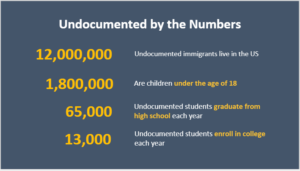
San Jose Teachers Association’s Taunya Jaco says that educators should be alarmed by the fact that of 1,800,000 undocumented children under 18, only 65,000 graduate from high school each year.
Jaco said her chapter and reps are continuing to move forward by asking, “What can you do at your site to support undocumented students and families at your school and in our community?”
“When we know the power of our collective voice, why would we not speak up in unity to address this?” she said. “It’s important to ask the questions and share the information.”
Last year on Martin Luther King Jr. Day, Louise Williamson and fellow educators organized a forum to discuss the new administration and its impact on immigrant rights, and over 100 people came. “I thought, ‘We have a movement!’ But teachers show up, fill out forms — but it doesn’t mean they are engaged.”
Instead, she discovered that “the way to engage people is to have one-on-one conversations at the site level. We had to talk about our story, about why the issue mattered, about how it was worth it for them to get engaged. We developed a mission statement, got a core group together at the site level.”
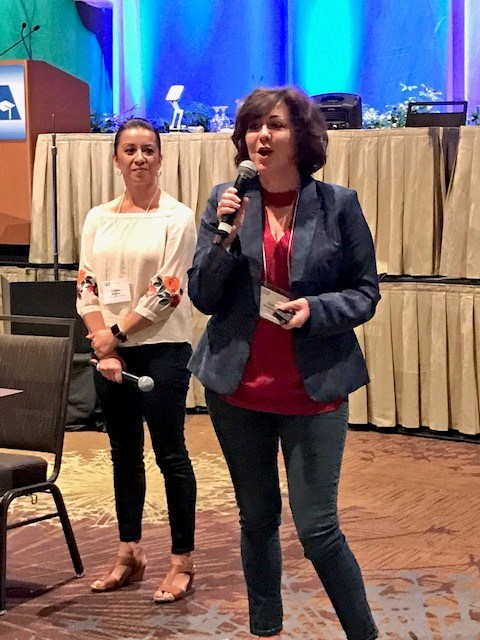
Christine Benson, National City Elementary Teachers Association and Louise Williamson, Sweetwater Education Association.
Then, a father dropping off his daughter at a local school was detained by ICE, in front of his traumatized child. It was a traumatizing event for the entire district. Benson described her chapter’s quick response:
“We did a press release condemning the raid, we worked with community members, we were part of the sanctuary city resolution at the city council and the school board resolution for welcoming schools.
“It was important for our association to be at the forefront of the movement within our town because we wanted our students and parents to know that we were there to support them when something like this happens.”
The chapter then had to figure out how to build a movement out of these moments. The solution, Williamson said, was to “create moments that educators could be a part of,” such as a forum and a civic academy where people could talk and connect. “In each of these moments we gathered up more sites and people to be engaged.”
Williamson said the goal is to have a site team at every site, working together with different associations, and to continue to look around and engage people who are passionate about the work.
“We have to be here for our kids and communities,” Benson added. “How can we ask them to stand on the corner with us when we ask for that 2 percent when we cannot support them?
“This is an opportunity to stand with, empower and engage our members that will create a movement that will be beneficial to our communities.”
Ignacia Rodriguez’s presentation is in the CTA Social Justice Toolkit. The toolkit also contains a DACA Advocacy FAQ, and multiple resources for educators to protect students and empower themselves.
The Discussion 0 comments Post a Comment